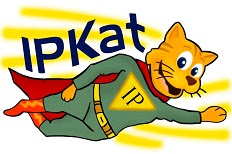The Colombian newspaper ‘
La Republica’ is full of goodies lately! Over the weekend I read three trade marks applications that were denied. The cases all were decided in first instance by the Superintendence of Industry and Commerce (SIC).
Cheese Company

SIC has denied registration to the ‘Cheesecake Factory’, an American multinational company, due to having phonetic similarity with the national firm ‘Cheesecake Company’, a micro company in Antioquia.
For those fans of ‘Big Bang Theory’, the Warner Bros TV comedy program, must surely be familiar with the café where penny works i.e. the Cheesecake factory. SIC established that the word sign ‘Cheesecake Factory’ "partially reproduced the spelling and grammatical structure of the Colombian business, which would prevent the distinction of the mark". Also, it added that the mark would cause confusion among consumers.
The Cheesecake Company is a small company of 5 employees that appears to be a success in its small town, selling desserts, pies, cakes and ice cream. Cheesecake Factory offers the same variety of desserts, plus salt food and bar service; it has 36 offices in the United States and has expanded to Mexico, Dubai and UAE.
A good decision? There is clearly a similar mark for a similar product BUT, should have the mark Cheesecake Company been allowed registration in the first place? It is describing the goods that it represents and although the words are in English for a Spanish speaker nations, I do believe that the word ‘cheesecake’ has become part of the common vocabulary in many café bars.
Yet, Cheesecake Factory said that they are looking to negotiate with Cheesecake Company.
Nat Geo
International Excess society SAS applied to register the word mark 'Nat Geo' for footwear (sought application in Class 25 Nice Clarification). The company is based in Chile where it has been trading for more than 22 years. It has also business in Peru, Ecuador and Argentina. While this application did not receive opposition, SIC denied the registration due to be confusingly similar to 'National Geographic’ that is registered for the same goods among others.
National Geographic is also known by its abbreviation 'Nat Geo'. I believe that this word mark is well known at least in my household!! Specially the TV Channel that is dedicated to the ecosystem, science, human body, animal life, history, travel, and so on and so forth.

As said opposition was not received but SIC explained that it has the authority and obligation to consider whether the mark applied for did clash with a previous one and was likely to cause confusion as in this case.
While the application for the word mark received was for ‘Nat Geo’ and the one in existence in the register is National Geographic, SIC extended to say that ‘Nat Geo' is an abbreviation of the registered trade mark.
A good decision?
Let’s be clear in something, is ‘Nat Geo’ registered as a trade mark? I do not quite follow SIC in this occasion. Does it mean that if I registered my name i.e. Patricia, nobody else can’t register Pat? This is an absurd outcome. While I do recognize that the term Nat Geo may have become well known, that is totally different from the grounds of not registering because of a previous trade mark i.e. National Geographic. The reason perhaps could be that there exist an early right i.e. an unregistered trade mark that has acquired sufficient reputation through use in that particular country.
Another issue that comes into my attention is more to do with trade and business. I do presume that the word sign has been registered in Chile where it has been trading for more than 20 years; also that they have been trading in Ecuador and Peru and these two countries are part of the Andean Community of Nation (
CAN) as well as Colombia. I wonder what the status of this mark in these countries is and whether the trade in this bloc will be affected. Can anyone from these countries enlighten us in this matter?
KENZO

The word sign KENZO was looking to be registered by the French firm and perfumery (registration was sought in Class 25 Nice classification) . It did find opposition from 'Kenzo Jeans', an active textile company which trades on that name and which does have registered such word name as a company in the SIC.
Kenzo Jeans argued that the word mark requested is ‘identical’ to its trade name that the company has been using for 23 years, inducing consumers to confusion. To validate this action, Kenzo Jeans submitted as evidence the following: certificates of deposit of its commercial name, invoices issued by suppliers on behalf of Kenzo Jeans, photographs of commercial establishments and a certified copy of the resolution by which was awarded a civil order of merit in grade Golden Cross.
KENZO in response to this action affirmed that KENZO is a reputable mark in the field of perfumery; it has a high level of recognition, quality, consistent and widespread use in the domestic and international markets and therefore, SIC ought to give acceptance to the application for registration.
SIC proceeded with the examination of registrability and thus, considering all the arguments and evidence submitted by the parties ratified the protection on the market of Kenzo Jeans and added that the sign KENZO could NOT be registrable.
A good decision?
This is a sensible decision, because while KENZO can claim that they are now a well-known mark, this was not the case 23 years ago when Kenzo Jeans started to trade and did legally register its trade name.
Another curiosity is the fact that SIC said it is an identical mark. I believe that the marks are not identical but similar after applying a global appreciation test. For example KENZO is a single term while Kenzo Jeans is a combination of words…yes KENZO is a word that stands up but it does not mean that the whole sign is identical.



















